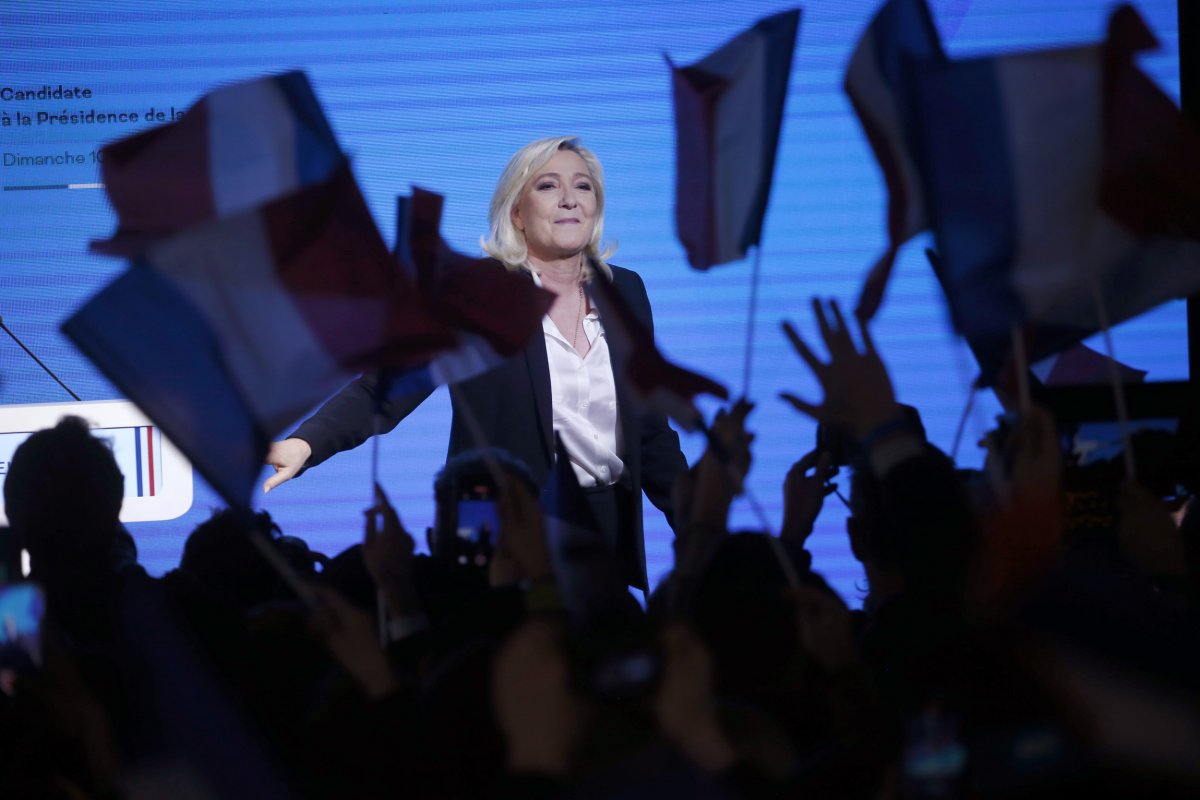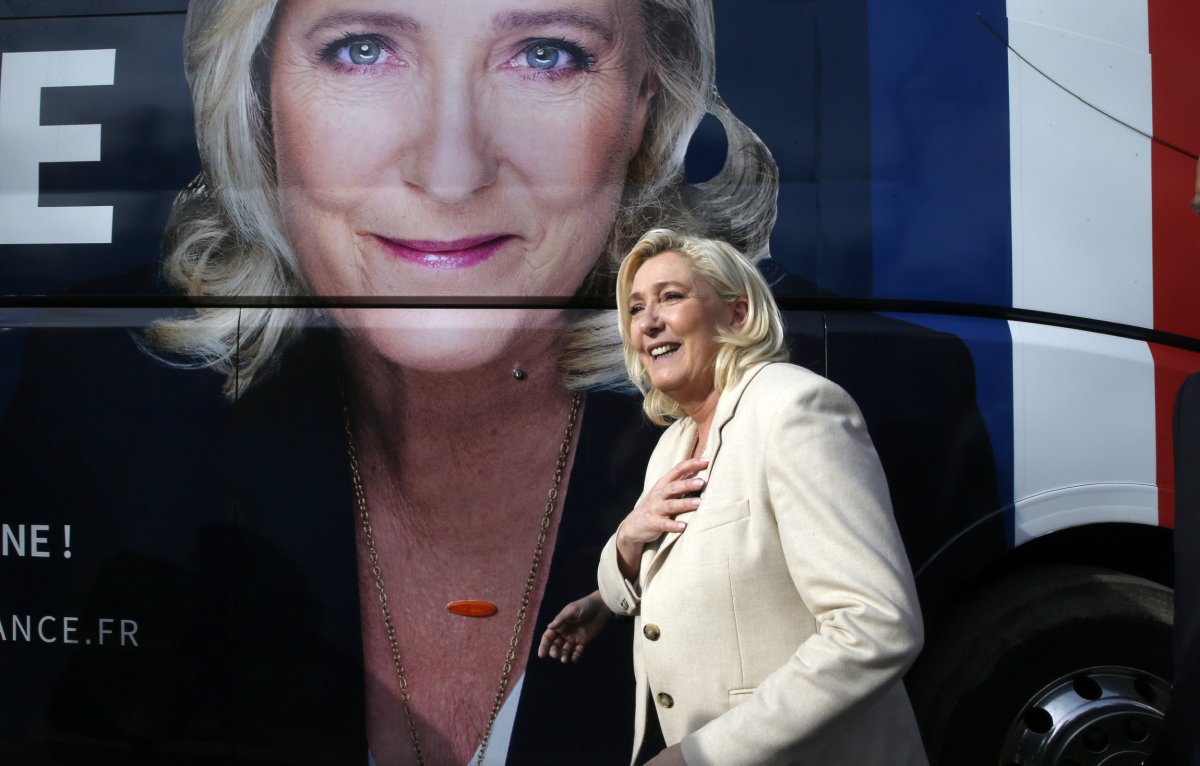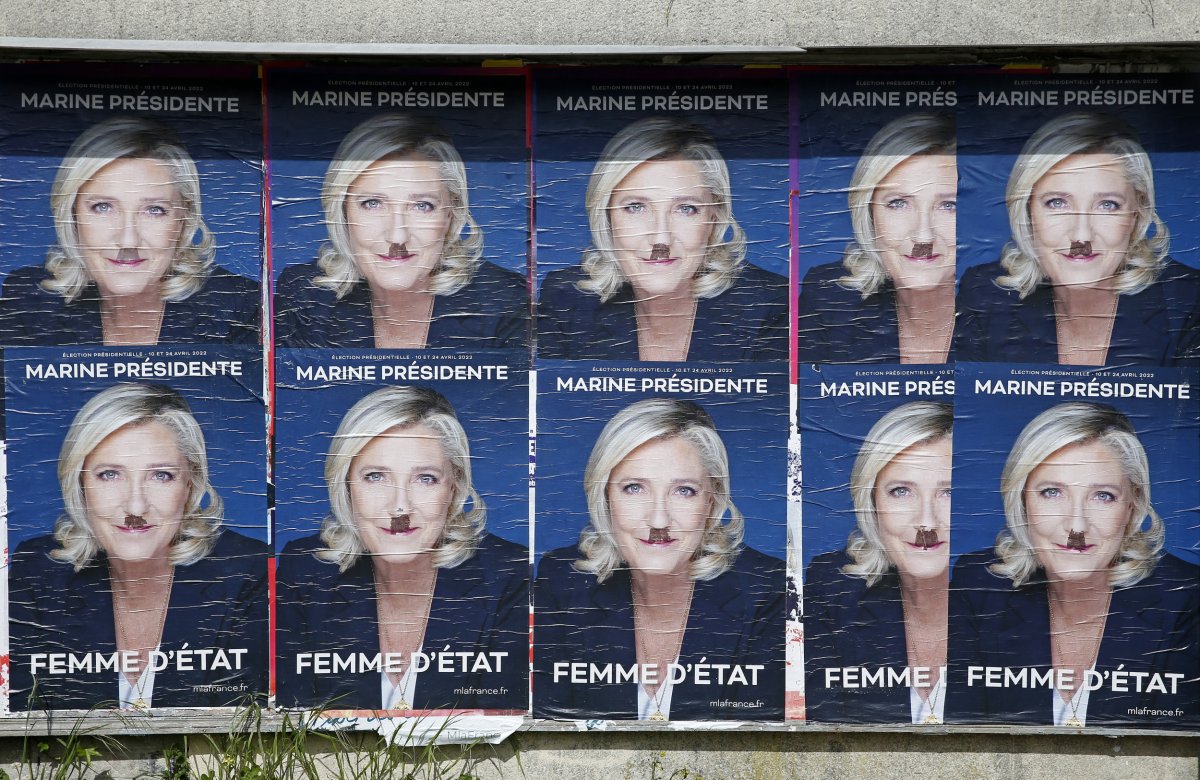French President Emmanuel Macron and National Rally (Rassemblement National) leader Marine Le Pen are heading into a tight runoff after a tense first round of the election on Sunday that saw the two separated by only a few percentage points at the top of the list of candidates hoping to lead France for the next five years.
The gap between the pair is much closer than expected. When Le Pen challenged Macron in 2017, she got 21.5 percent of the votes in the first round against Macron's 23.7 percent. In the second round of the election, she was far behind the current President, with 33.90 percent of the vote against his 66.10 percent.
But in the first round of the election this year, she established herself as Macron's main competitor, with 23.41 percent of support against the president's 27.6 percent.
Her popularity today is the result of the work Le Pen has been doing in recent years to distance herself from the traditionally toxic stances of her party, and her campaign's focus on the domestic and economic issues close to the heart of many French voters.
"Since 2017, she has changed quite significantly how she presents to the French electorate. And Macron has not significantly changed how he presents to the French electorate," Ben Judah, senior fellow at the Atlantic Council's Europe Center, told Newsweek.

"In 2017, she said she wanted to leave the euro and leave the EU. Now she's only saying that she wants to transform them or change them from within," Judah explains.
"And that has helped her get more votes from middle-aged and middle-class people who previously were very worried about what would happen to their pensions, the value of their properties or their incomes if France leapt out of the euro into the unknown, without a clear plan for what comes next."
In the first round of the election, Le Pen conquered middle-aged voters, performing best among 35- to 59-year-olds, according to Ipsos pollsters. The over-65s favored Macron, while more than one in three young people aged between 18 and 24 voted for left-wing candidate Jean-Luc Mélenchon, who got 21.95 percent of the votes.
Most young people—42 percent of 18-24 year-olds and 46 percent of 25-34 year-olds— simply abstained from voting.
According to a poll conducted by Ipsos and Sopra Steria between April 4 and 9 among 4,000 people whose names appeared in the electoral registers, Macron only beat Le Pen with voters aged over 60, with 41 percent of the over-70s and 30 percent of those aged 60 to 69 voting for the president.
An overwhelmingly majority of those aged between 35 and 59 voted for National Rally's leader.
How Did Le Pen Conquer Middle-Aged Voters?
"Middle-aged voters are looking for stability. Le Pen significantly toned down her anti-EU rhetoric in an attempt to increase her appeal to this demographic," Elizabeth Carter, assistant professor of political science at the University of New Hampshire, told Newsweek. "Her anti-immigrant rhetoric had made her unpalatable to many middle-aged voters in the past, this too has been tamed—she's been distancing herself from the overt racism and anti-semitism of the Front National."
Until 2018 National Rally was known as the National Front (Front National).
Le Pen has long abandoned the racist and violent rhetoric that characterized her party when it was led by her father Jean-Marie. Since 2017, she has focused her message on domestic issues which are close to many in France, especially those who share a feeling of disenfranchisement and feel left behind by Macron's administration—the unemployed, inhabitants of the rural north, those on lower incomes.

Points of Le Pen's campaign focusing on economic policies particularly appeal to middle-aged voters, "especially as Macron is looking to increase the retirement age to 65 and Le Pen is looking to decrease it from 62 to 60 for those who started working before the age of 20," Carter explained. "Her policy to decrease the VAT on energy from 20 percent to 5.5 percent will appeal to this demographic as well," she added.
Le Pen focused her campaign on cost-of-living issues and dropped the messages that in 2017 made her seem a very dangerous candidate to the majority, such as the pledge to leave the European Union if elected.
"She's not presenting herself as the economic disruptive candidate she was last time, she is presenting a kind of softer program," said Judah.
Le Pen's stance against the EU remains one that's primarily adversarial, as the National Rally leader has vowed to restore the primacy of national law over EU law.
"The truth is that her program would lead to a bit of a disintegration of the EU over time, but she's not presenting to the French electorate a sudden break like she was last time," said Judah.

By focusing on pressing issues at home, Le Pen conquered that wide age group between 35 and 64 that Macron hasn't managed to reach.
"Her shift towards the center on her more controversial stances, coupled with select economic populist policies, has increased her attractiveness with middle-aged voters. Add to this that she has stayed away from politically polarizing issues [gay marriage, abortion] and the fact that Macron is proposing some unpopular reforms, and that he is broadly seen as elitist," said Carter.
"Voters in the middle age group are seeking to maintain or improve their lifestyle, Le Pen's vision is perceived as economically and socially poised to do this."
But how did Macron get so out of touch with an entire age group?
"I think what is not being understood by the French establishment, is how concerned this age group is about rising prices and by the new high inflation environment and how it's affecting their income," said Judah.

"We've got a generation of leaders who are not used to operating in a high inflation environment, and they've kind of forgotten the political forces of gravity that can operate in those circumstances."
Should Macron win the election on April 24, as polls expect, "he really needs to focus on the domestic arena, and he needs to answer the French people's anger about rising costs of living, social injustice and a sense of diminished possibilities and diminished futures," said Judah.
Other Factors
The social and professional background of the two candidates' supporters is starkly different. According to the Ipsos/Sopra Steria poll, Macron was favored by executives (35 percent of the vote against 12 percent for Le Pen) and retirees (38 percent against 17 percent for Le Pen).
He was also the favorite candidate among graduates but most people with no baccalaureate (France's bachelor degree) voted for Le Pen. Poorer households—with less than €1,250 net monthly income—also voted en masse for Le Pen, who got 31 percent of votes in this category compared to Macron's 14 percent. The president did better with households with a net monthly income of over €3,000 ($3,248).
Deciding France's Future
Now, the future of the country and that of the candidate who will emerge victorious from the second round of the election depends on the support Macron and Le Pen are able to gather from voters who did not consider them their first choice. The answer will be revealed on April 24.
Newsweek has reached out to National Rally and En Marche! for comment.
Update 4/13/22, 6:51 a.m. EDT: This article has been updated to include vote percentages for Le Pen and Macron in the 2017 election.
Correction 4/15/22, 5:15 p.m. EDT: This article has been updated to correct the title of Elizabeth Carter.
Uncommon Knowledge
Newsweek is committed to challenging conventional wisdom and finding connections in the search for common ground.
Newsweek is committed to challenging conventional wisdom and finding connections in the search for common ground.
About the writer
Giulia Carbonaro is a Newsweek Reporter based in London, U.K. Her focus is on U.S. and European politics, global affairs ... Read more
To read how Newsweek uses AI as a newsroom tool, Click here.








